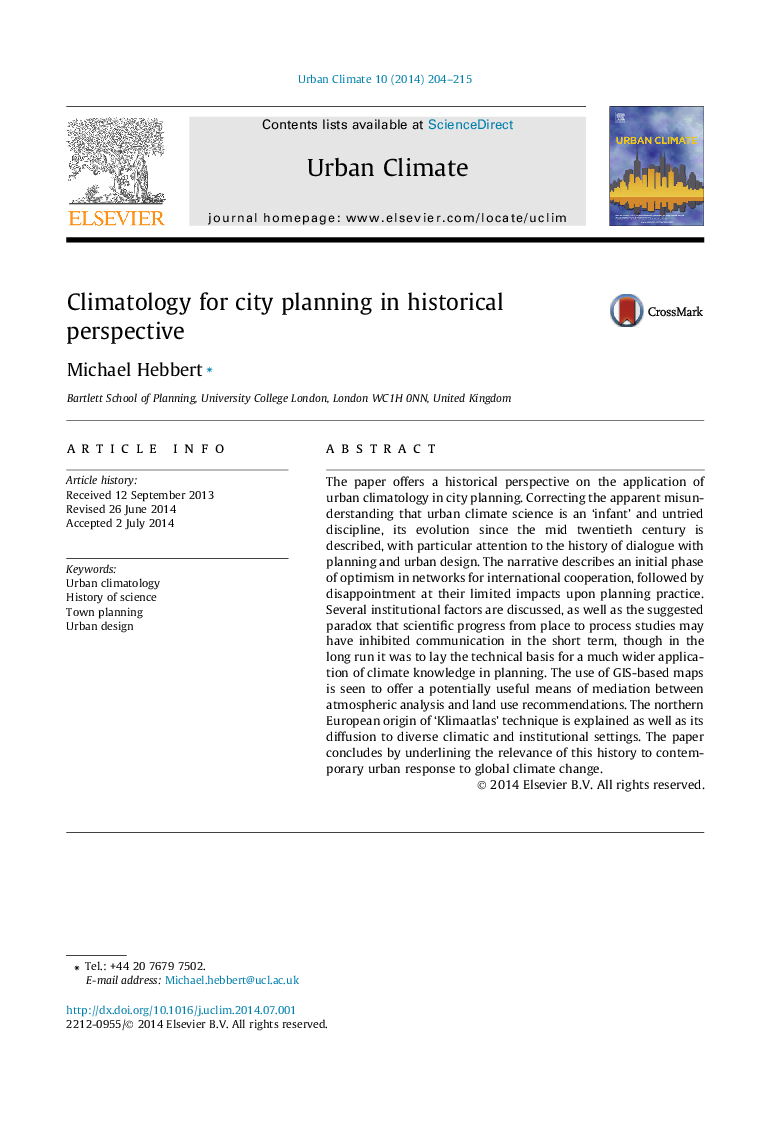| Article ID | Journal | Published Year | Pages | File Type |
|---|---|---|---|---|
| 10260288 | Urban Climate | 2014 | 12 Pages |
Abstract
The paper offers a historical perspective on the application of urban climatology in city planning. Correcting the apparent misunderstanding that urban climate science is an 'infant' and untried discipline, its evolution since the mid twentieth century is described, with particular attention to the history of dialogue with planning and urban design. The narrative describes an initial phase of optimism in networks for international cooperation, followed by disappointment at their limited impacts upon planning practice. Several institutional factors are discussed, as well as the suggested paradox that scientific progress from place to process studies may have inhibited communication in the short term, though in the long run it was to lay the technical basis for a much wider application of climate knowledge in planning. The use of GIS-based maps is seen to offer a potentially useful means of mediation between atmospheric analysis and land use recommendations. The northern European origin of 'Klimaatlas' technique is explained as well as its diffusion to diverse climatic and institutional settings. The paper concludes by underlining the relevance of this history to contemporary urban response to global climate change.
Related Topics
Physical Sciences and Engineering
Earth and Planetary Sciences
Earth and Planetary Sciences (General)
Authors
Michael Hebbert,
